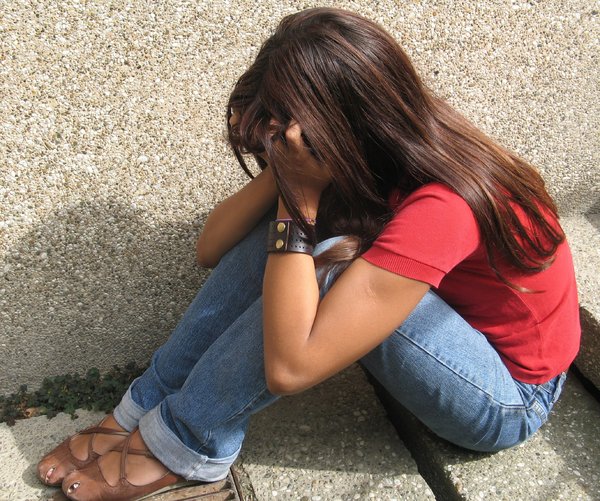When I became a parent, my greatest hope for my children was that they would live happy, fulfilling lives. I didn’t care how smart they would become or how rich and successful they would grow up to be. I just wanted my children to be happy.
But as I gained a few years of parenting experience, I discovered that being “happy” is not an easy thing to define or even achieve. As a mother, I know all too well that happiness is not as simple waking up with a smile on your face, and depression can effect anyone, at any time, and at any age.
No parent ever wants to consider that their child may be depressed enough to take his own life, but the fact is…childhood and teen suicide is a very real problem. Like any other issue that parents deal with, the most important first step is recognizing the signs and knowing the next steps to take.
The following is the real story of a friend of mine and her experience with depression within her family.
No parent wants to hear “I wish I was never born.”
Several members of our family have a strong history of anxiety or depression. Most we have known about for years; one we did not find out about until it was too late.
My son has shown signs of being bipolar since the age of two. We just knew. For some time, my husband and I kept it amongst ourselves, fearful that a doctor would call us crazy for calling our two year old depressed and knowing that we would not want to medicate him at such a young age anyway.
The signs and symptoms came and went. We cherished the times when life was “normal” and remained apprehensive about the pendulum swinging back again. When our second child came along, we became even more convinced that my son’s behavior was not typical childhood frustration.
As he got a little older there was still the severe aggravation at the tiniest of events: growling, door slamming and the dreaded words that no parent wants to hear: “I wish I was never born. I wish I were dead.” We subtly made moves such as bolting his furniture to the wall, taking the lock off his bedroom door, and removing items from his room that he could use to hurt himself – just in case.
Then we saw it. As clear as day, we suddenly realized the pattern. With our son, his depression sets in while his body is experiencing hormonal changes like a growth spurt. The first endocrinologist we told dismissed it immediately. No way, he said.
We started therapy in the hopes that he could learn how to calm himself down in a way that works for him and to simply understand himself better. We tried several strategies and eventually figured out a few ways that my stubborn, depressed, angry son can begin to calm down. We also know now when to chime in and when to just let him be.
My son is now nine. The pendulum still swings and the pattern still clearly exists. Last month we took him to a new endocrinologist who acknowledged that his depression is, in fact, related to hormonal changes that occur with his growth. We are all moving forward together. My husband and I are supportive of medication for depression and anxiety but first we are going to look for and address any hormonal deficiencies or imbalances while will continue to monitor his depression and continue to have him learn more about himself.
Please do not ever let someone make you feel as if your gut instinct as a parent is an overreaction or a case of helicopter parenting. Trust your intuition, ask questions and advocate for your child.
The key step in helping a child (or any family member) who suffers from depression or suicidal thoughts is early intervention. Recognizing the signs, determining a correct diagnosis (and not giving up!), and then taking action is critical to finding a happy and safe balance.
Just like my friend was able to recognize her son’s pattern with hormonal changes leading to his aggravated depression, parents can also looks for possible environmental stressors, such as noises, school, or social situations. One way of addressing environmental stressors could be to seek a therapeutic school placement.
Sage Day School provides a safe, small, therapeutic and challenging educational community that integrates social, emotional and academic growth through the collaboration of students, families and staff to empower and prepare students with the skills needed to realize their potential and achieve success.
This post has been sponsored by Sage Day School. Check out Susan’s post about the signs that your child might be depressed on 5 Minutes for Mom. All thoughts included in this post are my own. Special thanks to my friend for sharing her story.
Photo source: rgbstock.com by lusi
© 2013, Food Fun Family. All rights reserved.

Leave a Reply